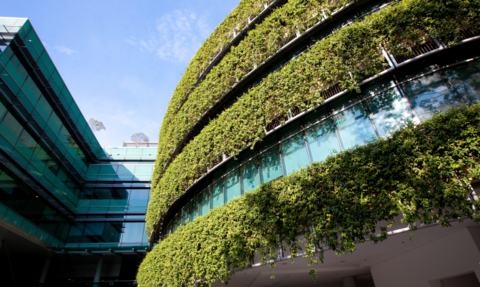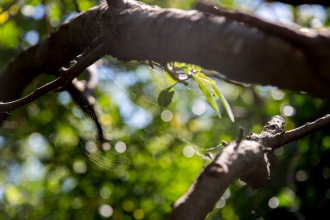
Wilder Planning
Wilder Planning
The planning system shapes the places where we live and work, and plays a vital role in determining the type and quality of landscape for future generations.
Inappropriate development can significantly impact wildlife. However, good planning and developments can help protect nature and secure wildlife’s recovery through the restoration and creation of well-connected wild places. If done well, planning can improve the health and wellbeing of the community, connecting people to nature by improving and creating green and wild spaces for people and wildlife to enjoy.
Our planning role is therefore about promoting positive outcomes as well as fighting potentially harmful proposals.
Our approach to planning:
We influence legislation and engage decision makers
We work to influence planning policy and legislation to ensure that planning protects and enhances the natural environment, for example through embedding the Nature Recovery Network and Biodiversity Net Gain in national legislation and local planning policy. We also engage decision makers (mainly MPs and Councillors) to educate them on planning issues and also, where necessary, to hold them to account.
We respond to strategic planning consultations
We prioritise responding to strategic or forward planning consultations, such as the Local Plans of the 11 District Councils, 2 National Parks and 3 Unitary Councils (Isle of Wight, Southampton City Council and Portsmouth City Council).
In each of these regularly revised Local Plans, our local councils propose where new developments would best be located in the future and what environmental policies should be applied when making decisions on individual planning applications in their area.
We respond to these consultations to ensure that key policies for nature’s recovery are integrated locally, such as the Nature Recovery Network and Biodiversity Net Gain.
We challenge the most damaging proposals
Unfortunately, we do not have the resources to respond to every planning application that may affect wildlife across our two counties. The Trust therefore only challenges the most damaging proposals as well as failures in the system, especially where they impact legally protected sites for nature, our nature reserves or set a dangerous precedent.
For example, we are campaigning with the RSPB to stop 3,500 houses being built on mudflats at Tipner West in Portsmouth which are legally protected as a Site of Special Scientific Interest, Special Protection Area and Ramsar site in recognition of its value for nature. If the development is given the green light, it could set a dangerous national precedent for building over protected sites for housing.
We work with planners, developers and landowners to protect and improve wildlife
We work with planners, developers and landowners to encourage well-designed developments that create new habitats, supporting the Nature Recovery Network and provide green and wild places for people and wildlife to enjoy.
We educate and empower local communities
We providing resources and training to members, volunteers and local residents, helping them to develop the skills and knowledge to influence local planning policy and defend wildlife.
Download our guide on responding to planning applications
Want a wilder future for your community? Interested in taking action on planning and housing, plus other issues that impact nature’s recovery locally? Why not enquire about our Campaign Leaders program where we provide you with the knowledge, tools and resources to lead your own campaigns, by emailing Campaigns@hiwwt.org.uk
Responses to strategic planning consultations

Hampshire and Isle of Wight Wildlife Trust to help deliver the first Biodiversity Net Gain (BNG) and Nitrate Mitigation scheme in the New Forest.
Kingwell partners with New Forest District Council, New Forest National Park Authority and the Hampshire and Isle of Wight Wildlife…
A New Era for Nature Positive Development
From Monday 12th February, a new era for nature positive development begins when Biodiversity Net Gain will be mandatory for major…

Trust objects to Bushfield Camp development
The Trust has objected to proposals for a large new development at Bushfield Camp which have been submitted to Winchester City Council…
Have your say
Every voice counts when it comes to making a difference for our wildlife and wild places. Currently, poorly planned housing and developments dominate our country, impact wildlife and local communities – but it doesn’t have to be like that! By engaging local planning and championing best practice, you can help make a wilder future for your community and the wildlife locally.
You can be a strong advocate for nature by doing the following things:
-
Find out when your local authority is consulting on its Local Plan. Insist on strong policies to protect wildlife and wild and green spaces. Find all the Local Plans for Hampshire here and Isle of Wight here.
-
Find out if your parish or town is putting together a Neighbourhood Plan. You can seek the creation of new wildlife-rich green space as part of the plan or protect existing natural areas.
-
Respond to planning applications you think could damage wildlife or have the potential to create more areas for wildlife or could deliver more biodiversity net gain. You can also let your local councillors and those on the planning committee know why you are objecting and encourage them to support your view. Download our guide on responding to planning applications
-
Record animals and plants that are present in your local area and send as many records that you are certain about to your local records centre, Hampshire Biodiversity Information Centre. This information helps when committees are making decisions about planning applications.
-
Report suspected wildlife crime and breaches of planning conditions to your local authority.
-
Talk to your MP about campaigns or changes in policy that you want them to support, or highlight a particular story or problem in your area.
Become a Campaign Leader
Want a wilder future for your community? Interested in taking action on planning and housing, plus other issues that impact nature’s recovery locally? Why not enquire about our Campaign Leaders program where we provide you with the knowledge, tools and resources to lead your own campaigns, by emailing Campaigns@hiwwt.org.uk
